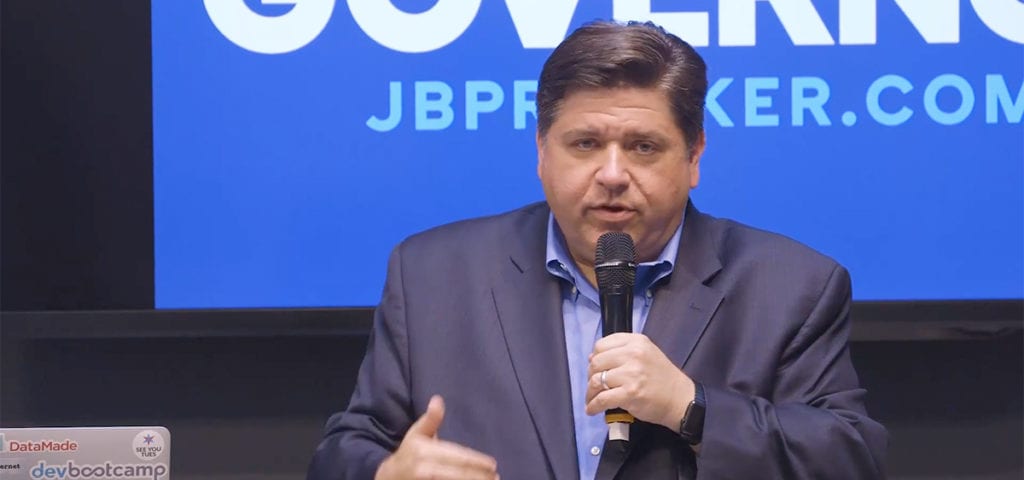As Illinois became the 11th state to legalize adult-use cannabis this week, Gov. J.B. Pritzker also issued pardons for more than 11,000 cannabis convictions.
Illinois Gov. Pardons 11,000 Cannabis Convictions

Full story continued below.
Advertisement
Illinois Gov. J.B. Pritzker (D) has pardoned 11,017 pardons for individuals with low-level cannabis convictions in what the governor’s office called the “first wave” of cannabis charge expungements in the state.
The pardons came the day before legalized cannabis sales commenced in the state.
“We are ending the 50-year long war on cannabis. We are restoring rights to many tens of thousands of Illinoisans. We are bringing regulation and safety to a previously unsafe and illegal market. And we are creating a new industry that puts equity at its very core.” – Pritzker in a statement
According to the governor’s office, there are more than 700,000 records in the state that are eligible for relief due to the recreational cannabis laws passed by the legislature last year. In all, there are 116,000 non-violent possession records eligible for expungement through the pardon process; those records are for possession of fewer than 30 grams of cannabis. Of those 116,000 records, 43,500 records solely involve cannabis offenses and 72,500 include another non-violent offense, Pritzker’s office said, noting that only cannabis convictions will be expunged.
Under the law, the Illinois State Police identified all eligible convictions and sent those records to the Prisoner Review Board, which will verify the accuracy of the conviction records. The PRB will forward them to the governor for pardon consideration. Following the gubernatorial pardons, the PRB will forward the documents to the Attorney General’s Office, which will file petitions in the circuit courts to expunge the records.
There are approximately 34,000 records for possession between 30 grams and 500 grams are eligible for expungement, the governor’s office said, and those individuals can enlist the help of civil legal aid organizations to file motions to vacate those convictions – state attorneys can also file those motions. Some taxes derived from cannabis sales will be set aside to generate funding to help individuals expunge those records.
Additionally, approximately 572,000 arrest records that did not result in a conviction up to 30 grams are eligible for expungement; this applies to arrests for possession, manufacture, delivery, and possession with intent to deliver. Agencies will expunge all records between Jan. 1, 2013 to Jan. 1, 2020 by Jan. 1, 2021; records from Jan. 1, 2000 to Jan. 1, 2013 will be expunged by Jan. 1, 2023; and all arrest records eligible prior to Jan. 1, 2000 will be expunged by Jan. 1, 2025.
Get daily news insights in your inbox. Subscribe
End